The six year effort of the Canadian Truth and Reconcialtion Commission is almost over. The Commission’s work was to look into the so-called Residential School system and the abuses that occurred there in institutions across Canada.
This week chairman Justice Murray Sinclair released the 381- page summary of the final report, a multi-volume report expected later.
Vanessa Watts-Powless is a lecturer in the Indigenous Studies Programme at McMaster University in Hamilton and a member of the Six Nations Grand River Reserve comments on the work of the Commission
Listen
The residential school system lasted over 100 years, and during that time some 150,000 aboriginal children were coerced or physically taken from families to attend schools far from home where their language and culture were harshly forbidden. The idea was to teach them to join mainstream Canadian society.
Justice Sinclair in his summary said in no uncertain terms that this has amounted to “cultural genocide”.
Highlights from opening speeches of the Truth and Reconciliation Commission 3;27 (will play after commercials)
During its hearings, the Commission gathered testimony from hundreds of Aboriginal former students of residential schools, most of them recounting extremely painful memories of physical, sexual, and emotional abuse.
Many of the so-called teachers and other staff were nuns and clerics in the schools most of which were church-run with funding from the government.
The report confirms what many Aboriginal people have known for decades, but which mainstream society has only learned about recently, that the staff of residential schools, were able to beat, rape and otherwise abuse Aboriginal children with impunity.
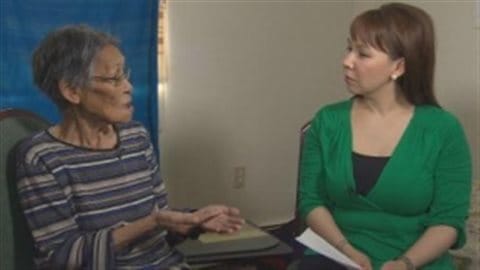
“These were heartbreaking, tragic and shocking accounts of discrimination, deprivation and all manners of physical, sexual, emotional and mental abuse,” Sinclair said.
One of the chilling findings was the high rate of deaths among the children while at schools. The report noted that a extremely high rate of the children in the schools died of malnutrition, disease, exposure while trying to escape, fires, or other unknown causes. The commission estimates as many as 6,000. The exact figure is unknown because of poor record keeping, In fact he says many children’s names were not even recorded, and in other cases the cause not recorded, and many buried in unmarked graves.
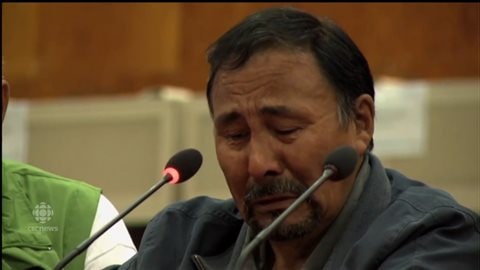
One recommendation calls on the Pope to apologize for crimes committed by agents of the Roman Catholic church.
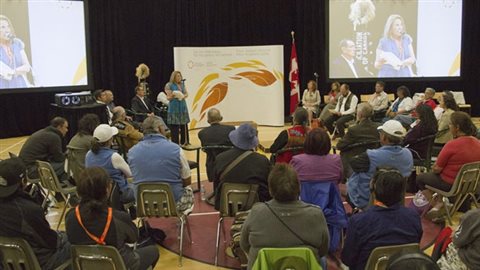
Five of the recommendations deal with provincial child welfare services noting the disproportionately high number of aboriginal children removed from families.
According to Statistics Canada, in 2011 there were 29,570 children under 14 in foster care. Nearly half, 14,222, or 48 per cent, were First Nations children.
Sinclair recommended that provinces work to provide resources so families are not broken up in the first place
Cindy Blackstock, executive director of the First Nations Child and Family Caring Society, a national organization that serves aboriginal children and families is quoted by CBC saying, “These children are being removed for factors we could prevent through equitable funding on reserve, by making sure that funding is targeted at the key factors of poverty, poor housing and substance misuse,” she said. “If we fail to take those actions on what we know, then we will also carry the burden of not having done what we could have done for this generation of kids.”
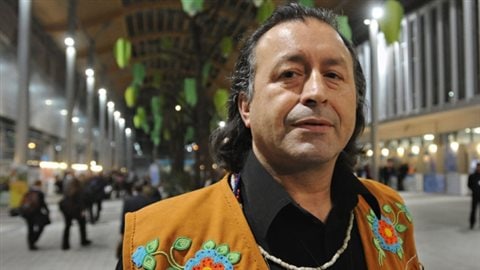
Other recommendations suggest specific ways of improving health, justice and child welfare services for Aboriginal people.
In presenting his report, Justice Sinclair said “Words are not enough. Reconciliation requires deliberate, thoughtful and sustained action.”
He also said the 94 recommendations are not only a guide for today’s leaders and society to change and reconcile, but for the rest of the future.
“All people in Canada must be clear, loud and united in expressing their heartfelt belief that reconciliation must happen in order for it to be effective,” said Sinclair.
CBC TV-news report on the release of the summary (report plays after commercial)
Key recommendations
- HEALTH: An acknowledgement that the current state of aboriginal health is a direct result of previous government policies and the implementation of health-care rights for aboriginal people.
- EDUCATION: The creation and funding for new aboriginal education legislation, which protects languages and cultures and closes the education gap for aboriginal people.
- JUSTICE: A commitment to eliminate the overrepresentation of aboriginal people in custody and in trouble with the law, along with the collection and publication of data on criminal victimization of aboriginal people.
- PUBLIC INQUIRY: The creation of a public inquiry into missing and murdered aboriginal women and girls.
- MONITORING: The creation of a national council for reconciliation, which would monitor and report on reconciliation progress, as well as the introduction of an annual State of Aboriginal Peoples report delivered by the prime minister.
- LANGUAGE: Government is asked to implement an Aboriginal Languages Act and appoint a language commissioner in order to preserve and promote it.
- FUNDING: The report calls for $10 million over seven years from the federal government for the National Centre for Truth and Reconciliation
- COMMEMORATION: The creation of a statutory holiday to honour survivors, their families and communities – and to ensure “public commemoration of the history and legacy of residential schools remains a vital component of the reconciliation process.”
- MEMORIALS: The report asks for funding for memorials, community events and museums, including a museum reconciliation commemoration program, to be launched in time for Canada’s 150th anniversary in 2017.
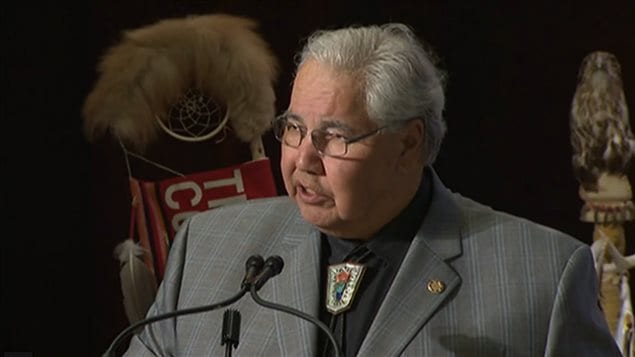






For reasons beyond our control, and for an undetermined period of time, our comment section is now closed. However, our social networks remain open to your contributions.